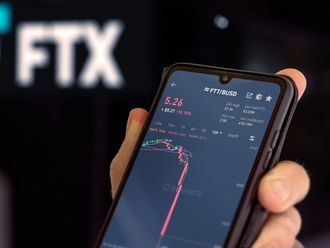London: London Stock Exchange Group Plc said the U.K.’s decision to leave the European Union may eventually damage investor confidence and weigh on trading, adding to challenges facing the exchange operator.
“There is a broad range of possible outcomes resulting from this vote which has created uncertainty in the markets,” LSE said Thursday in a statement while reporting first-half profit. “The uncertainty or the outcome may erode investors’ confidence and impact primary and secondary market volumes, assets-based fees and clearing volumes in the UK”
So far, that hasn’t been a problem. The company made more money from capital markets in the first half, with revenue rising 7 per cent to 181.6 million pounds ($241.5 million). Sales increased 9 per cent.
The company also has to contend with changes to the U.K.’s access to the single European market. Even under some of the more severe scenarios envisioned, the London-based company’s global footprint should help it cope, says Chief Executive Officer Xavier Rolet.
“We have the full spectrum of capabilities to answer that kind of challenge,” Rolet said on a conference call. The UK isn’t likely to have a major disruption in financial services access, “because the cost, the penalty, would be very high, not just of course for the United Kingdom but also for the rest of the EU,” he said.
LSE is pursuing a tie-up with Frankfurt-based Deutsche Boerse AG, a transaction that’s also been shaken by Brexit. The holding company’s London headquarters is a sticking point for German officials, especially in light of an eventual exit. While the framework for the deal is set, the UK will remain in the EU for at least a few years and the combined company’s board will adapt, he said.
“We also have a governance structure for the long run, which gives the company flexibility,” Rolet said.
Work on regulatory consent for the deal is underway, LSE said today. Officials in France and Germany have threatened to claw back euro denominated clearing — the majority of which happens in London — that are central to the acquisition. The European Central Bank previously tried to require euro trades be cleared in the common-currency area, but was overruled by a top EU court.
London’s clearing houses hold $230 billion of cash and bonds as collateral against their members defaulting, compared with Frankfurt’s $62 billion and Paris’s $25 billion. LCH is the world’s biggest clearer of swaps and is majority owned by LSE. A treaty change would be necessary for the ECB to require that euro clearing take place within the bloc, Rolet said.
“That is not impossible, but I would say at this moment, there is no immediate threat from that standpoint,” he said.












